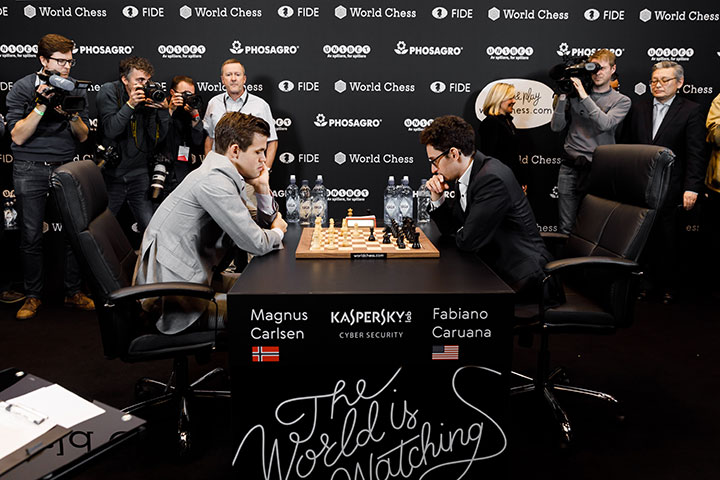Some thoughts on the rules of the match
I watched the 2018 World Chess Championship match between Magnus Carlsen and his challenger Fabiano Caruana at home, entirely online. Unfortunately, I could not be in London myself this time, but the live commentary from the Saint Louis Chess Club team of GM Yasser Seirawan, GM Maurice Ashley and WGM Jennifer Shahade was interesting enough. Special guests like Garry Kasparov, Vishy Anand, and Vladimir Kramnik commented on the games via Skype, and most of all, I found Kasparov's assessments of the situation very impressive, because they often formed a strange contrast to the computer analyses presented by Maurice Ashley.
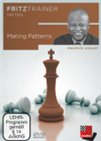 On this DVD, Grandmaster and worldrenowned commentator Maurice Ashley reviews some of the most interesting patterns with examples meant to educate and entertain.
On this DVD, Grandmaster and worldrenowned commentator Maurice Ashley reviews some of the most interesting patterns with examples meant to educate and entertain. But the twelve classic games that Carlsen and Caruana played seemed less thrilling to me, although I do not want to criticise one or the other player specifically for it. After all, the World Championship title and a lot of money was at stake! Considering these facts you can understand Carlsen's decision not to play the 12th game for a win. Why should he risk anything, if he was sure that he would be able to win the rapid games? The 3-0 in the tie-break proved him right. Nevertheless, a certain discomfort remains: 12 draws in a row — should that be the future of chess?
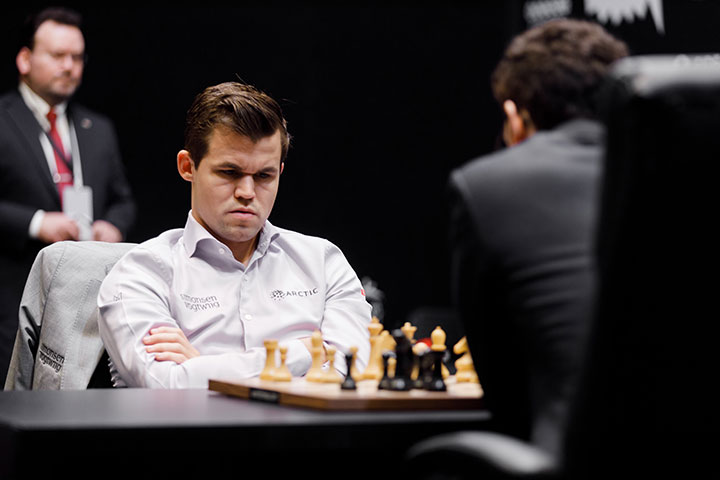
Whatever it takes | Photo: World Chess
Today's rules are inappropriate
My thesis is: Today's rules of a World Chess Championship in classical chess are not likely to produce profound and exciting games — I mean the games with long time controls, not rapid and blitz, which can, indeed, be very exciting.
From 1951 to 1972 and again from 1985 to 1993, we had a wealth of exciting, 24-game World Championship matches. Why were the rules changed several times since then? This affects not only the number of games to be played but also the introduction of the so-called "tiebreak" with ever-reduced time controls. Also, the time controls for the regular, "classic" games have been reduced more and more in the World Chess Championship matches over the years. Bobby Fischer and Boris Spassky still had 2½ hours for the first 40 moves. Later the players had had only 2 hours. Today they have only 1 hour and 40 minutes left with 30 seconds increment per move from the start. Did this constant shortening produce more profound and exciting games? I don't think so. And why should a tiebreak with rapid or even blitz games be used at all to decide who is the "classical" World Chess Champion? Must a marathoner (running 42 kilometers) be also the best 200 or 100 meter runner, if he wants to win the World Championships?
The negative consequences of shorter time controls
Because there is much less time available for the first 40 moves than some decades ago, opening preparation in top chess is becoming increasingly important. Bobby Fischer spoke in this context of "pre-arranged games" and said that chess is completely "dead" nowadays. Anyone who can rattle off the first 20 or 25 moves of a game out of memory will have a great advantage right from the start, not only because these moves have already been tested at home, but also because he has more or even much more time left for the rest of the game than his opponent, who perhaps had to start ten moves earlier to think for himself.
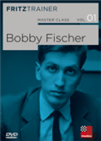 No other World Champion was more infamous both inside and outside the chess world than Bobby Fischer. On this DVD, a team of experts shows you the winning techniques and strategies employed by the 11th World Champion.
No other World Champion was more infamous both inside and outside the chess world than Bobby Fischer. On this DVD, a team of experts shows you the winning techniques and strategies employed by the 11th World Champion.
Grandmaster Dorian Rogozenco delves into Fischer’s openings, and retraces the development of his repertoire. What variations did Fischer play, and what sources did he use to arm himself against the best Soviet players? Mihail Marin explains Fischer’s particular style and his special strategic talent in annotated games against Spassky, Taimanov and other greats. Karsten Müller is not just a leading international endgame expert, but also a true Fischer connoisseur.This situation is exacerbated by the increasing strength of modern chess programs. While previously a whole team of top Soviet grandmasters helped Anatoly Karpov prepare novelties in the opening for his matches against Victor Korchnoi, today every halfway-technically savvy user can have such a grandmaster team consisting of "Komodo", "Houdini", "Fritz" and other chess programs working and analyzing for his own benefit. And why should one leave these technical possibilities really unused? No mathematician would even think of giving up a computer and working with a slide rule or paper and pencil instead. And yet, there remains the danger that top-chess may become too mechanical sooner or later due to the proliferating analysis of "opening" variations. How could you counteract this trend?
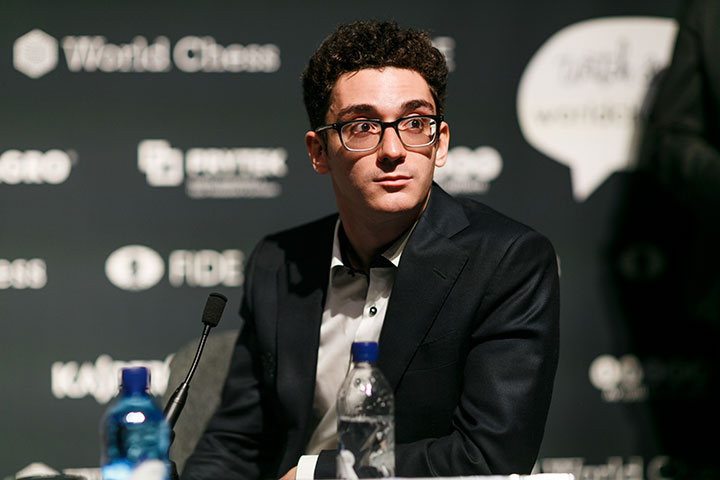
That's a tough one | Photo: World Chess
Longer time controls + more match games = more exciting chess
Producing more profound and exciting games requires, in my opinion, two elements: On the one hand additional time for the two players and on the other hand more match games. Why do the top grandmasters need more time for the first 40 moves? Someone who, for instance, sacrifices a pawn for some compensation (a lead in development, open lines, more space, attacking chances), cannot afford to make a weaker move, because that might soon lose all compensation and the game may already be lost. But how can you find the best moves, if less and less time is available? Therefore, in my opinion, the time control for a World Championship match should be increased again back to 2 1/2 hours for the first 40 moves in this manner:
Each player gets 1 hour and 50 minutes for the whole game + an increment of 1 minute per move from the beginning.
This means that the players will have 2½ hours for the first 40 moves just like Bobby Fischer and Boris Spassky had in 1972, and after the 40th move, there remains 1 minute per move until the game is finished. Even if 100 moves had to be played, a game would last no longer than seven hours. And both the attacker and the defender would benefit from the extra time which is especially useful in the critical phases of a game. When the crisis is over and one of the players has a clear advantage the increment of one minute per move should be sufficient to secure victory. Profound and more exciting games will be the result.
24 games are better than 12
The number of games was halved from 24 to 12! Who's going to take risks in this format? The shorter the match is, the harder the first loss will be. If 24 games must be played, even a 0-2 backlog can not be prematurely decisive, as we learned from the World Championship match Spassky vs Fischer in 1972.
When asked, both players in London supported the idea of lengthening the match, although a range of 16-18 games was mentioned.
No more tiebreaks, please
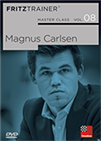 Scarcely any world champion has managed to captivate chess lovers to the extent Carlsen has. The enormously talented Norwegian hasn't been systematically trained within the structures of a major chess-playing nation such as Russia, the Ukraine or China.
Scarcely any world champion has managed to captivate chess lovers to the extent Carlsen has. The enormously talented Norwegian hasn't been systematically trained within the structures of a major chess-playing nation such as Russia, the Ukraine or China.In addition, I think the challenger who wants to become World Champion should again be required to defeat the reigning World Champion in classic chess with long time controls, not in rapid or blitz games. In case of a tie, the reigning world champion should simply retain his crown. This requirement would significantly affect the match strategy. As long as a tiebreak with rapid or blitz games is guaranteed in case of a tie, there is absolutely no need to play for a win, neither for the challenger nor for the champion. This fact significantly influenced the course of the 2018 match!
Yet another aspect speaks against a tiebreak consisting of rapid and blitz games: The single-day shape of the athlete often proves crucial. Every chess player knows it from his own experience: Tired and badly rested you can't compete in rapid or blitz! Fatigue almost inevitably leads to frustrating losses. And the degree of fatigue will certainly increase during an exhausting World Championship fight. While less important in games with long time controls it can be decisive in rapid or blitz games. And, again, the World Championship match shall decide who is the best chess player in classical chess, not in rapid or blitz. For these two disciplines, we have separate World Championships starting in a few weeks.
Too long for sponsors?
The argument that a World Championship match with 24 games would last too long and no sponsors could be found nowadays does not convince me. If four games per week are played, such an event would end after no more than six (exciting) weeks. And we don't have or need a World Chess Championship every year. Every second or third year should be enough.
Magnus Carlsen is a worthy World Champion
Let me add one more thing, because I don't want to be misunderstood: Magnus Carlsen has, in my opinion, deserved to win. He would most likely have also been superior in the rapids to a well-rested challenger. Nevertheless, I would like to see the next World Championship match in a different, better format. This article is intended to initiate a discussion about this, not only among the numerous fans and lovers of the game, but also among the responsible organizations.
Links
